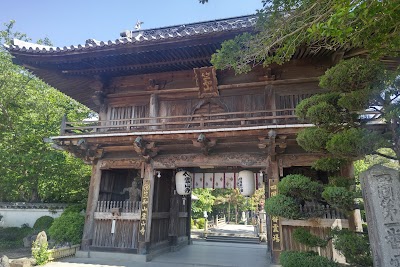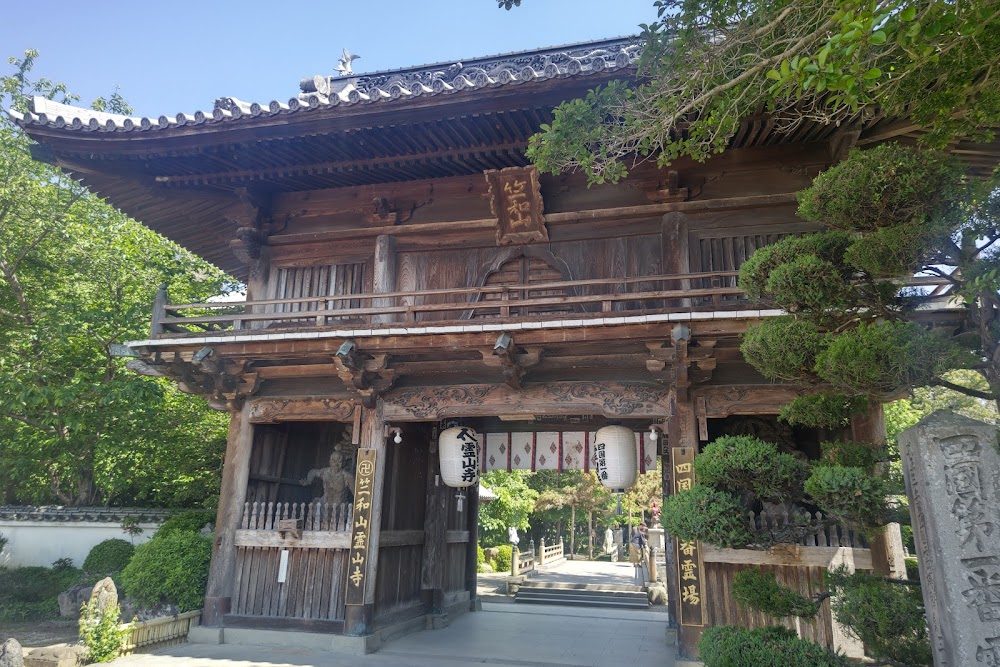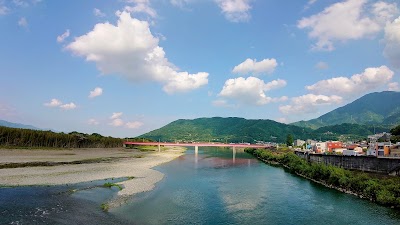Yoshinogawa River (吉野川)
Overview
The Yoshinogawa River, flowing gracefully through Tokushima Prefecture on Shikoku Island, Japan, is a breathtaking treasure that harmoniously blends natural beauty, historical significance, and cultural richness. This majestic river serves not only as Tokushima's lifeline but also as a captivating attraction for visitors who are drawn to its scenic vistas and rich heritage.
Historically, the Yoshinogawa has been a vital artery for the region. Spanning over 194 kilometers (approximately 120 miles), it originates from Mount Ishizuchi in Ehime Prefecture, winding its way across the island before emptying into the Kii Channel. The river has been instrumental in irrigation, fostering agriculture in the lush valleys along its banks. A notable highlight of its historical significance is the Oboke-Koboke Gorge, which has served as a formidable natural barrier and a strategic location throughout various periods of Japanese history.
The significance of the Yoshinogawa River extends beyond its practical uses; it is intricately woven into the cultural and spiritual fabric of the area. The river has inspired countless poems and artworks, capturing its serene yet sometimes tumultuous beauty. The turbulence of the water, especially visible in the gorges, reflects the rugged and resilient spirit of the local people, while its tranquil stretches symbolize peace and prosperity.
For nature enthusiasts, the Yoshinogawa River is a paradise of picturesque landscapes and exhilarating outdoor activities. The Oboke-Koboke Gorge stands out as a prime location for adventure seekers, with its dramatic cliffs and swirling rapids making it a popular spot for white-water rafting and canyoning. These thrilling experiences are not just about adrenaline; they offer a fantastic opportunity to immerse oneself in the stunning beauty of Shikoku's mountainous terrain.
Additionally, the river boasts a rich biodiversity. The Yoshinogawa River basin is home to a variety of flora and fauna, including several endemic species. Birdwatchers will delight in the diverse avian life, with sightings of the Japanese cormorant and mandarin duck frequent along the riverbanks. This intricate ecosystem, having remained relatively undisturbed over the centuries, showcases the harmonious relationship between the river and its natural surroundings.
Cultural festivities also underscore the importance of the Yoshinogawa River. One of the most vibrant celebrations is the Yoshinogawa River Festival, held annually during the summer. This lively event features stunning fireworks, traditional boat races, and local performances that highlight the rich cultural heritage of Tokushima Prefecture. Visitors are invited to join in the festivities, which provide a unique glimpse into local customs and an unparalleled cultural experience.
Moreover, the river is dotted with charming towns and villages that reflect the historical and cultural evolution of the area. Take Yoshino Town, for example, known for its traditional homes and serene atmosphere. Exploring these quaint settlements offers a window into the architecture, crafts, and lifestyles shaped by the river over centuries.
For those who prefer a more leisurely pace, a stroll along the riverbanks or a scenic boat tour can be immensely rewarding. These relaxed activities allow tourists to soak in the tranquil environment, marvel at the scenic beauty, and perhaps even enjoy a picnic in one of the many riverside parks. Each season brings its own unique charm—spring’s cherry blossoms, autumn’s vibrant foliage, and summer’s lush greenery create a dynamic natural tapestry that enchants visitors year-round.
Traveling to the Yoshinogawa River is a straightforward endeavor. The region is well-connected by public transport, with regular trains and buses running from Tokushima City to various points along the river. For those seeking a more intimate journey, renting a car allows the freedom to explore at your own pace and discover hidden gems along the way.
In summary, the Yoshinogawa River in Tokushima Prefecture is much more than just a body of water; it stands as a symbol of natural splendor, historical depth, and cultural richness. Whether you’re in search of adventure, tranquility, or a deeper understanding of Japanese heritage, the Yoshinogawa River promises a unique and enriching experience that lingers long after your visit.
Make sure to include the Yoshinogawa River in your travel itinerary when you visit Shikoku Island, and immerse yourself in the captivating essence of this remarkable region.






